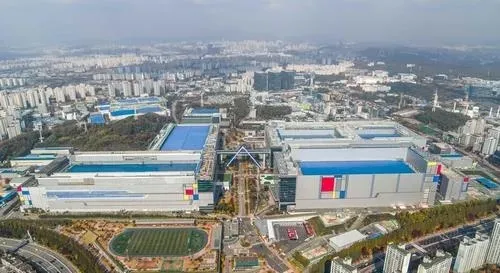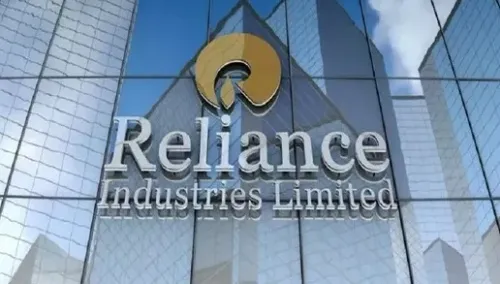Samsung's Semiconductor Business Faces Unprecedented Trials in the Age of AI

Seoul, Dec 2 (NationPress) Samsung Electronics, a leader in the semiconductor field, is grappling with considerable obstacles as the worldwide memory market shifts towards artificial intelligence (AI)-driven technologies.
The company's three-decade dominance as the premier memory chip manufacturer is under strain, primarily due to its delayed response to the surging demand for high bandwidth memory (HBM), which is essential for AI accelerators, as reported by Yonhap news agency.
This technology titan ventured into the semiconductor realm in December 1974 by acquiring Korea Semiconductor under the vision of the late Chairman Lee Kun-hee, quickly positioning itself as an industry frontrunner.
In 1983, the company introduced its inaugural 64-kilobyte DRAM, setting the stage for significant advancements such as the first-ever 64-megabit DRAM in 1992 and the world's first 1-gigabit DRAM in 1996.
Throughout the years, Samsung Electronics upheld its supremacy through innovations like the 20-nanometer (nm) DRAM in 2011, 10nm-class DRAM in 2016, and the groundbreaking mass production of 3nm foundry chips in 2022.
These pioneering developments and world-first accolades empowered Samsung Electronics to maintain a substantial presence in the DRAM market for three decades.
However, a monumental shift instigated by the AI revolution has unsettled the conventional memory market, with demand transitioning from general-purpose DRAM to AI-optimized chips such as HBM.
Samsung Electronics has not adequately prepared for this swift change and has invested less in HBM compared to its rivals.
Conversely, SK hynix Inc. has proactively invested in this technology, achieving a near-monopoly by supplying HBM chips to Nvidia, the leading entity in AI accelerators.
According to the latest market statistics, Samsung Electronics commanded the DRAM market with a 41.1 percent share in the third quarter of 2024, a slight decrease from 45.1 percent at the end of 2022, just before the HBM market emerged.
In contrast, SK hynix's share surged to 34.4 percent from 27.7 percent during the same period, aided by robust sales of its HBM chips.
This market scenario led Samsung Electronics to issue a rare public apology for its unsatisfactory performance and the business crisis it is confronting after its third-quarter earnings report in October.
"Samsung Electronics' reputation as being at the 'pinnacle of technology' has been compromised by the decline in its competitiveness as indicated by HBM," remarked Lee Seung-woo, an analyst at Eugene Investment & Securities Co.
"It may take longer than anticipated for Samsung to regain its core competitiveness, but it marks the start of a positive shift that the company acknowledges rather than concealing."
To reclaim its competitive edge, Samsung Electronics is concentrating its efforts on HBM development, striving to bridge the gap with its competitors. The company is prioritizing the provision of fifth-generation HBM3E to Nvidia and plans to initiate mass production of sixth-generation HBM4 in the latter half of the upcoming year.
Moreover, Samsung Electronics is enhancing its investment in emerging memory technologies, including compute express link, process-in-memory, and enterprise SSDs, which are critical for AI servers.









